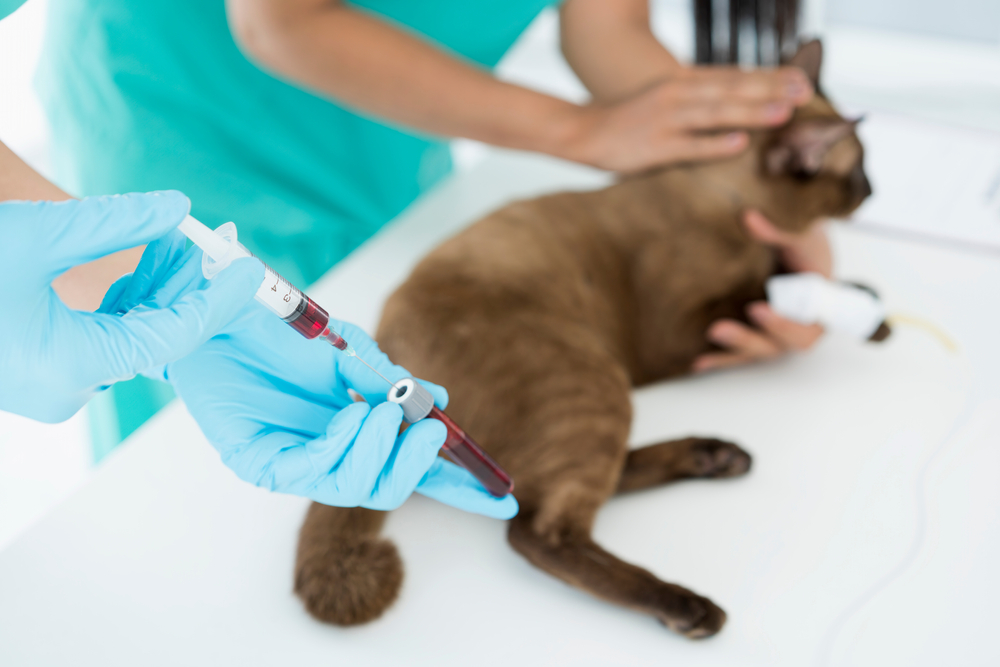
The Humane Society of the United States reports that millions of pets end up in shelters every year. Adopting these sweet animals can provide a new start for you and the pet, but you should have them screened for common health conditions as soon as possible.
Health Tests
It’s so important your newly rescued pet receives a comprehensive health check before you introduce them into your home. Physical health screenings can detect possible health problems so we can then start treatment right away.
Some of the physical health screenings for your rescued pets include:
Blood work can detect diseases before your new pet shows symptoms. These tests can rule out underlying diseases such as diabetes or kidney failure. It can also confirm your rescue is healthy enough for surgeries, like spays or neuters.
A physical exam can check for any abnormalities or parasites. After a physical exam, we can better recommend preventives and vaccines to help your new pet stay healthy and safe.
FeLV (feline leukemia virus) and FIV (feline immunodeficiency virus) tests are important for rescued cats. These diseases attack and weaken the immune system, making the cat more susceptible to infections. If your cat test negative for these diseases, we can vaccines against these viruses. If your rescue tests positive, we can help you provide a good quality of life for your new friend, as these diseases are incurable.
Stool testing is an effective way to determine if your rescue pets have internal parasites. The screening can detect protozoa, tapeworms, hookworms, roundworms and whipworms. If positive, we can start treating the infestation before it spreads to other pets or even humans.
Heartworm testing can determine if your rescue is infected. If positive, we can help you decide the best treatment plan for your dog. Regardless, we’ll recommend heartworm preventives that you must give year-round to help prevent this deadly disease.
Behavioral Evaluation
It is common for rescue pets to suffer from different types and levels of emotional and mental trauma. Acknowledging and addressing these issues is necessary for a chance at a happy home life for you and your new pet.
Behavioral assessments include:
Stress assessments can help you understand the behavioral problems your rescue pet may have. Shelters are known to be very stressful. Any pet can develop problems such as aggression, fearfulness or becoming territorial. Participating in therapy can help strengthen the bond with your pet.
Temperament testing can determine your rescue pet’s natural way to react to its surroundings. This is a good way to see how your new pet handles possible scenarios. If your new pet exhibits normal reactions, you can broaden their exposing them to different situations.
Detecting common issues in rescued pets can help correct them and will allow you to have a harmonious relationship with your new family member. At Springwood Veterinary Hospital, we prioritize the health and well-being of every patient we see. You can drop by our facility in Spring, Texas, or call 281-370-3262 to set up an appointment or ask about our pet screening packages.









